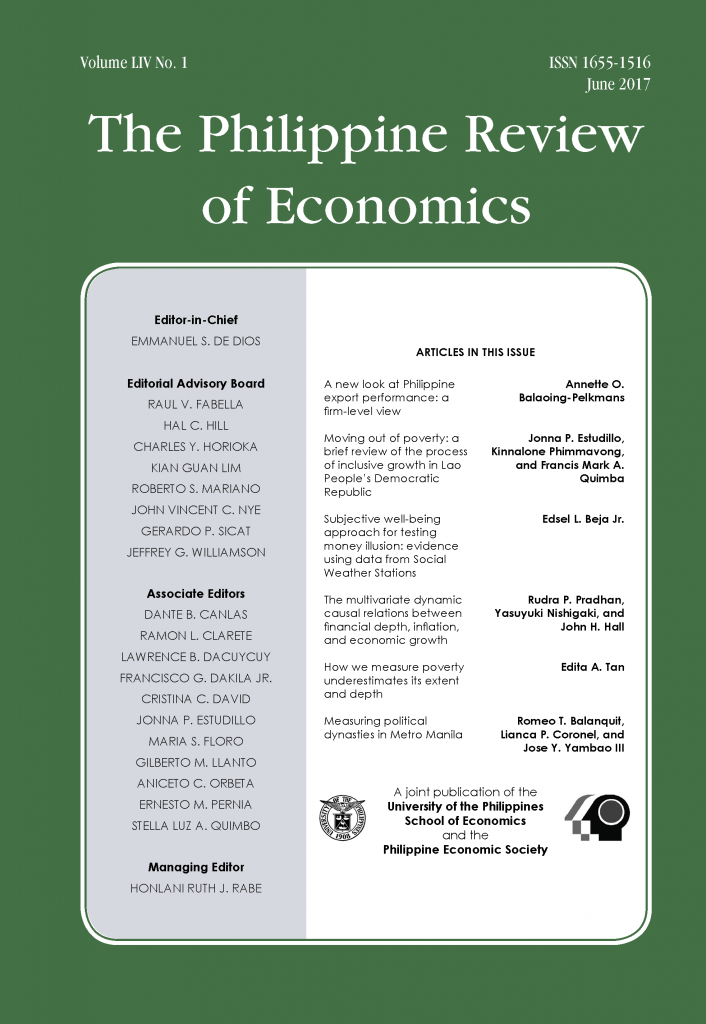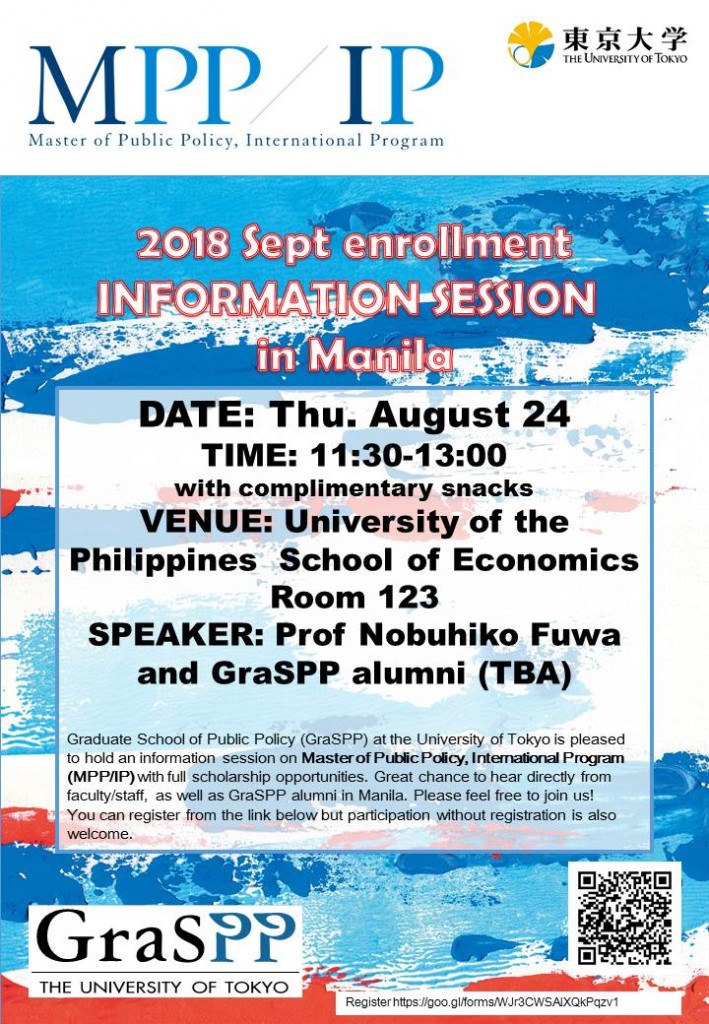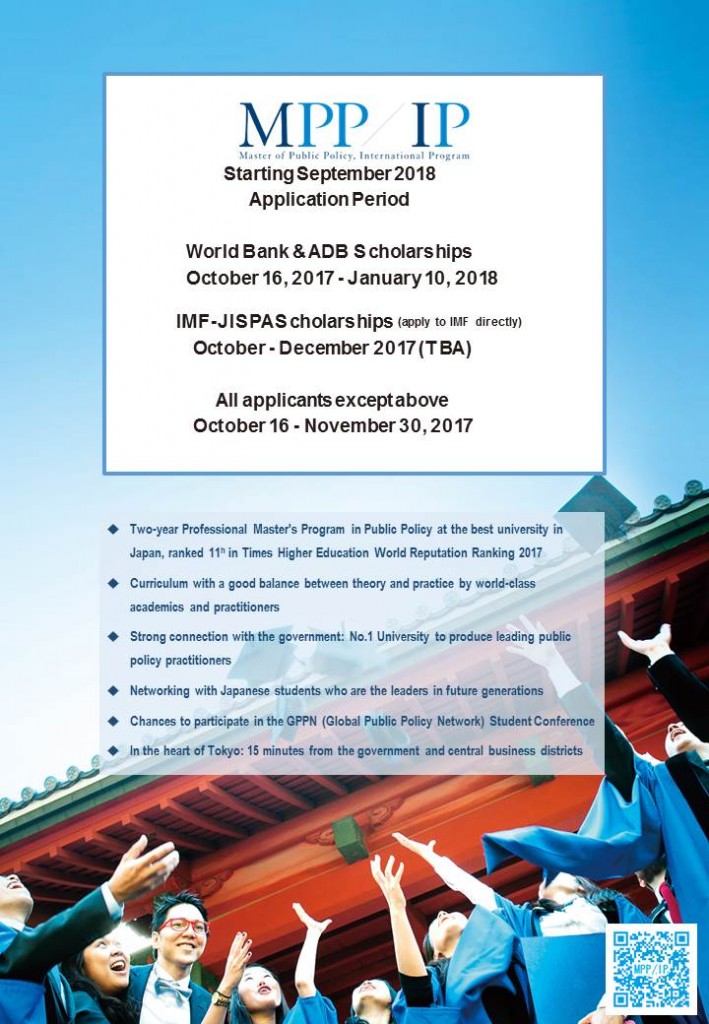Yearly Archives: 2017
Economist links manufacturing to more inclusive growth, poverty alleviation
Source: Business Mirror (https://businessmirror.com.ph/economist-links-manufacturing-to-more-inclusive-growth-poverty-alleviation/)
Supporting the expansion of manufacturing is key to achieving sustained and inclusive economic development and to eradicating abject poverty in the Philippines, according to an eminent economist and academic.
Raul V. Fabella, national scientist and professor emeritus at the University of the Philippines School of Economics, said the contribution of manufacturing and industry to local output or the GDP, have declined in recent years, coinciding with developmental slowdown and unabated poverty in the country.
Referencing data from the World Bank for the period 1986-2009, Fabella noted that manufacturing share fell from 25 percent in 1986 to 19 percent in 2009, while industry share fell from 35 percent to 29 percent. In contrast, services share rose from 40 percent in 1986 to 57 percent in 2009.
The Philippines’s manufacturing sector has been bucking the trend observed among the least developed countries (LDCs) that are fast catching up with more developed peers, and is following the pattern observed in mature economies, Fabella said.
He said “catch-up LDCs” tend to post gains in the shares of manufacturing and industrial sectors, while recording either losses or gains in the share of the service sectors.
On the other hand, mature economies like South Korea manifest loss in the shares of industry and manufacturing, even as they mark gains or flat growth in services.
The Philippines “mimics mature economy trends,” Fabella observed during a recent presentation on the topic inclusive capitalism in low-income economies.
Comparing Philippine performance with those of fast-rising developing economies in Asia and those of developed nations from 1986 to 1996, Fabella showed that emerging economies during that period demonstrated big spikes in the shares of manufacturing and industry in relation to GDP.
Indonesia, Malaysia, Thailand, and China all showed robust positive growth for manufacturing and industry during the 10-year period; in contrast, the shares of these two sectors in the Philippines contracted, while services posted healthy expansion during the period.
In the same span of time, South Korea, Germany and the United States registered growth surges in services share, while showing deep cuts in the shares of industry and manufacturing, Fabella added.
In terms of poverty reduction, meanwhile, Fabella cited figures showing how poverty rates in the Philippines were much lower than either China or Vietnam circa 1990, but that by around 2010, China and Vietnam had drastically lowered their poverty rates, while poverty in the Philippines remained high, having gone down only slightly.
The economist stressed that institutional and policy changes are needed to stimulate Philippine economic growth and significantly slash high poverty rates.
He suggests “embracing rather than fearing a weak peso to sustain investment-led growth.”
He also calls for the scaling up of the quantity and quality of Philippine infrastructure under the government’s “Build, Build, Build” program, and seeks the lowering of the cost of power, including by connecting the Visayas and Mindanao grids to give substantial new capacity to the Visayas region.
His other recommendations include for the government to amend the Public Service Act and lift the constitutional limits to foreign ownership, and continue its strategic retreat to its core competence by, for example, privatizing the Metro Rail Transit and Ninoy Aquino International Airport 1 and 3.
Prof. Ruperto P. Alonzo, 70
It is with deep sadness that the School of Economics announces the passing of Professor Ruperto ‘Ruping’ P. Alonzo on 7 November 2016.
Professor Alonzo was a well-loved teacher and faculty member for 45 years. He began his career at UP as a Professorial Lecturer in 1968 and remained on the faculty until his retirement in 2013. In 2016, he was named Professor Emeritus. He also served UP as Vice President for Development (2005-2009), Director of the Institute for Small Scale Industries (2004-2009).
He was appointed as Deputy Director-General of the National Economic and Development Authority from 1998 to 2001.
His wake is at the Santa Maria de la Strada Chapel. On Friday, 10 November 2017 at 3 pm, his SE family will hold a memorial service to honor his memory.
RVF: Embrace weaker peso
Source: Business Mirror (https://businessmirror.com.ph/embrace-weaker-peso/)
The government should welcome a weak peso rather than fear it if it wants to cut poverty faster and attract more foreign investments, according to an economist from the University of the Philippines (UP).
In a presentation at the Ayala-UP School of Economics (UPSE) Forum on Monday, National Scientist and UP Professor Emeritus Raul V. Fabella said a weak peso will make the Philippines an attractive investment destination and will encourage businessmen to consider long-term investments in the country.
To significantly reduce poverty incidence in the country, Fabella said the ratio of foreign investments to total investments should go up to as much as 30 percent.
“Even up to now, China’s [foreign] investment rate is around 40 percent. With 30 percent, we will be able to improve our infrastructure. To make it sustainable, the Philippines should have open markets and, I claim, that we should embrace rather than fear the weak peso,” he said.
However, Foundation for Economic Freedom Vice Chairman Romeo Bernardo said he does not agree that a weak peso can help cut poverty faster.
Bernardo also added allowing the peso to depreciate further just to make the country’s business environment more competitive could hurt the poor.
A weak peso would make imported products more expensive. This is a major concern, especially for a country like the Philippines—a net food and fuel importer.
“[A weaker peso] could lead to labor demands for higher wages and feed inflation further. This will not only negate the depreciation we need but could lead to a real appreciation, not to mention the impact of inflation on the poorest sectors,” Bernardo said.
But Fabella said the Philippines could take a cue from China, whose economic success was largely due to its decision to allow the entry of more foreign investors. He added that China’s economic success was ushered in by Deng Xiaoping, who opened his country’s doors to the world after Mao Zedong’s death in 1976.
Allowing free enterprise, foreign investment, and earning from exports enabled China to lift 600 million of its citizens out of poverty between 1980 and 2014. Poverty incidence rate fell to ,6.5 percent in 2014, from 88 percent in 1980.
Fabella said the government should also roll out improvements in the country’s infrastructure and lower the cost of power to attract more foreign investors.
He said lowering power costs could include exempting manufacturing firms from paying feed-in tariffs and completing the so-called One PHL Power Grid, as the country’s power grids remain “fragmented.”
Fabella said the government should consider continuing its privatization efforts, which could be aided by the lifting of restrictions in some economic sectors.
He noted that the privatization of government’s telecommunication assets in the 1990s enabled the business-process outsourcing sector to flourish in the Philippines.
Addressing poverty is one of the primary targets under the Millennium Development Goal (MDGs) and the new Sustainable Development Goals. Under the MDGs, poverty should have been halved by 2015. The SDGs aim to wipe out poverty by 2030.
However, the Philippines failed to meet its target of goal of cutting poverty incidence to 17 percent by 2015 under the MDGs. The target was based on the 34-percent rate in 1990, the baseline year for the MDGs.
In October former UPSE Dean Ramon Clarete said the Philippine GDP must grow by at least 6 percent every year until 2030 to eradicate poverty. Clarete said this economic growth should be accompanied by a 5-percent annual growth in per-capita income over a period of 25 years.
GDP growth in the Philippines averaged 6.2 percent between 2010 and 2015. In 2016 GDP expanded by 6.9 percent and 6.4 percent in the first semester.
Growing the economy, Clarete said, requires making food cheap and accessible for all as well as boosting the country’s trade and investment growth. Clarete noted that rice remains expensive not only for consumers but also for farmers.
Data showed that this is largely due to expensive trade costs. Clarete said trade costs in the Philippines are very high. The United Nations Economic and Social Commission for Asia and the Pacific pegged trade costs at 50 percent of world prices.
PRE June 2017 issue now available
The editors are pleased to announce the release of the June 2016 issue of the Philippine Review of Economics. Printed copies may be secured from Rm. 237 and 232 of the U.P. School of Economics. For electronic copies please write to pre@econ.upd.edu.ph.
To view the article abstracts please visit the PRE website.
Announcement from the Office of the University Registrar – August 14, 2017
Students who have yet to finalize their registration may get a Temporary ID from the College/University Library to have access to libraries. Please bring your validated Form 5A/Assessed Form 5.
Wanted: Administrative Aide V
There is an opening for Administrative Aide V (SG-5) in the UP School of Economics
Status: Permanent – ADA5-674-2004
Qualification Standards
Education: Completion of two-year studies in college
Experience: 1 year of relevant experience
Training: 4 hours of relevant training
Eligibility: Career Service Sub-professional
Deadline of application: 10 July 2017
Interested applicants must:
a) Download and fill-out the Recruitment Forms 1 & 2 of UP Human Resources Office (HRDO) at http://hrdo.upd.edu.ph/RSS_form1.xlsx, http://hrdo.upd.edu.ph/RSS_form2.xlsx and send it to uphrdorecruitment@gmail.com (need not be printed)
b) Submit on or before the set deadline to the Recruitment & Selection Section of UP HRDO located at the Mezzanine floor, Quezon Hall, UP Diliman the following documents:
- Letter of application (stating the position, college/unit and that you certify all the attached documents are true and correct)
- Comprehensive Resume with (1) 2×2 recent picture
- Supporting documents: (only photocopies of the following documents should be submitted but original copies must be presented for counterchecking)
- Transcript of Records,
- Certificate/s of Employment signed by previous employer,
- Seminar/Training Certificates (taken within the last five (5) years,
- Certificate of awards/citations (optional but encouraged to be submitted).
- Certificate iof Eligibilty,
- Latest One (1) year Performance Rating/s
Wanted: Administrative Assistant II
There is an opening for Administrative Assistant II (SG-8) in the UP School of Economics
Status: Permanent – ADAS2-2079-2004
Qualification Standards
Education: Completion of two-year studies in college
Experience: 1 year of relevant experience
Training: 4 hours of relevant training
Eligibility: Career Service Sub-professional
Deadline of application: 10 July 2017
Interested applicants must:
a) Download and fill-out the Recruitment Forms 1 & 2 of UP Human Resources Office (HRDO) at http://hrdo.upd.edu.ph/RSS_form1.xlsx, http://hrdo.upd.edu.ph/RSS_form2.xlsx and send it to uphrdorecruitment@gmail.com (need not be printed)
b) Submit on or before the set deadline to the Recruitment & Selection Section of UP HRDO located at the Mezzanine floor, Quezon Hall, UP Diliman the following documents:
- Letter of application (stating the position, college/unit and that you certify all the attached documents are true and correct)
- Comprehensive Resume with (1) 2×2 recent picture
- Supporting documents: (only photocopies of the following documents should be submitted but original copies must be presented for counterchecking)
- Transcript of Records,
- Certificate/s of Employment signed by previous employer,
- Seminar/Training Certificates (taken within the last five (5) years,
- Certificate of awards/citations (optional but encouraged to be submitted).
- Certificate iof Eligibilty,
- Latest One (1) year Performance Rating/s
Wanted: Administrative Officer III
There is an opening for Administrative Officer III (SG-14) in the UP School of Economics
Status: Permanent – ADOF3-873-2004,ADOF3-874-2004
Qualification Standards
Education: Bachelor’s Degree relevant to the job
Experience: 1 year of relevant experience
Training: 4 hours of relevant training
Eligibility: Career Service Professional
Deadline of application: 10 July 2017
Interested applicants must:
a) Download and fill-out the Recruitment Forms 1 & 2 of UP Human Resources Office (HRDO) at http://hrdo.upd.edu.ph/RSS_form1.xlsx, http://hrdo.upd.edu.ph/RSS_form2.xlsx and send it to uphrdorecruitment@gmail.com (need not be printed)
b) Submit on or before the set deadline to the Recruitment & Selection Section of UP HRDO located at the Mezzanine floor, Quezon Hall, UP Diliman the following documents:
- Letter of application (stating the position, college/unit and that you certify all the attached documents are true and correct)
- Comprehensive Resume with (1) 2×2 recent picture
- Supporting documents: (only photocopies of the following documents should be submitted but original copies must be presented for counterchecking)
- Transcript of Records,
- Certificate/s of Employment signed by previous employer,
- Seminar/Training Certificates (taken within the last five (5) years,
- Certificate of awards/citations (optional but encouraged to be submitted).
- Certificate iof Eligibilty,
- Latest One (1) year Performance Rating/s





